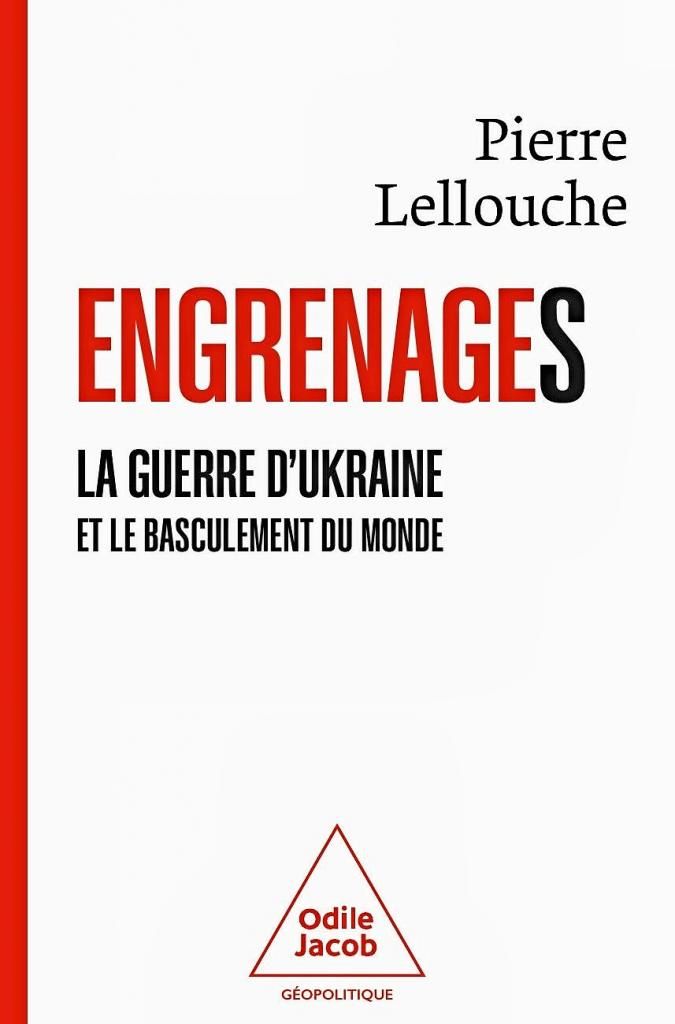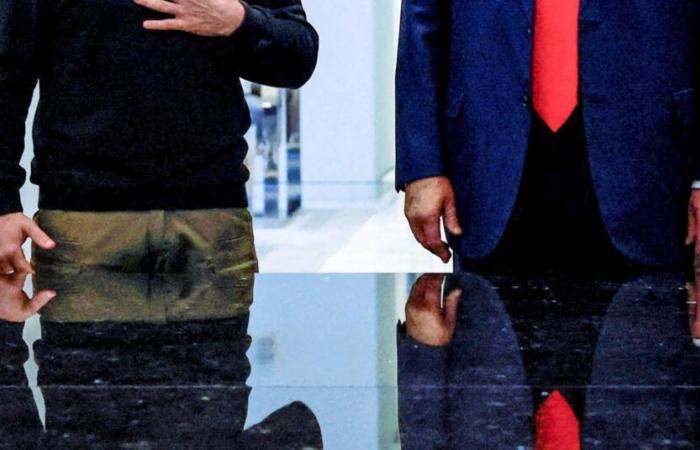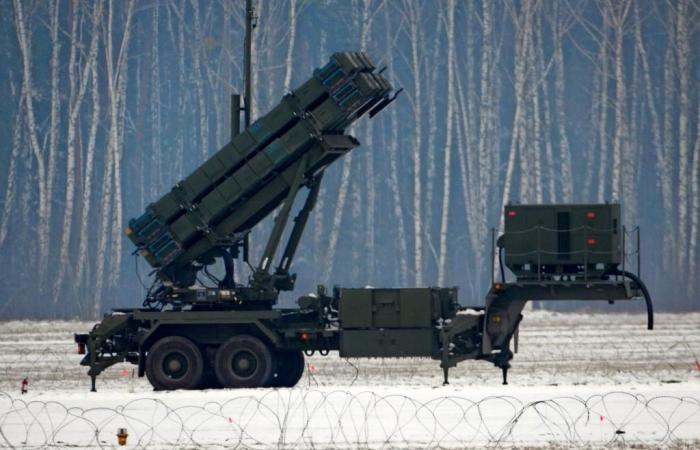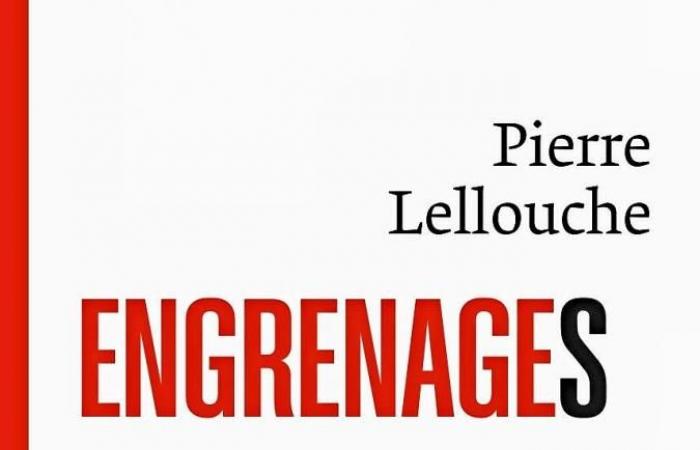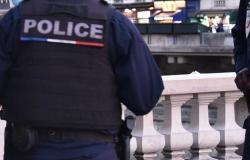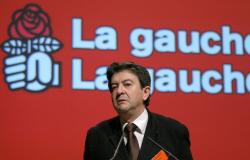The re-election of Donald Trump must also provide the opportunity for Europeans to finally determine their war goal, analyzes former French Secretary of State Pierre Lellouche. Under penalty of going down with Ukraine.
Almost three years after its outbreak, the war in Ukraine will be one of the first issues that President Donald Trump will have to address after his inauguration in the White House in January. His proximity to Vladimir Putin and his desire to reduce military spending raise fears that Ukraine’s interests will be sacrificed and that Europeans find themselves isolated in the face of Russian expansionism. Criticism of the management of the Ukrainian file by Europeans, the former French Secretary of State for European Affairs Pierre Lellouche publishes Gears (1). He deciphers possible developments in the war in Ukraine after the change of presidency in the United States.
Can Donald Trump’s re-election change the course of the war in Ukraine?
After three years, the conflict entered into a war of attrition that was extremely penalizing for Ukraine. The country is at the end of its rope. If we count the 300,000 to 350,000 dead and at least 700,000 wounded on all sides, the toll still reaches the million victims! Donald Trump’s return to the White House may accelerate a settlement. At least, it is an opportunity for Westerners to finally ask themselves the question of what their war aim is. We know that of Russia, which evolved from a Czechoslovakia-style police operation in 1968 – it failed – to a war of conquest of the part of Ukrainian territory – Donbass and Crimea – that the Russians consider as Russian. They want to see the annexation of these territories recognized in a peace treaty, in addition to ensure Ukraine’s neutralitywhich has always been their key objective since the country’s independence in 1991: to prevent Ukraine from moving west, into the fold of NATO. Faced with this Russian claim, what do we Westerners want? So far we don’t know. The proclaimed goal is to support Ukraine “as long as necessary.” But what exactly does this mean? Stop the “Putinization” of the world, as the French Minister of Foreign Affairs, Jean-Noël Barrot, said? Overthrow Putin and go to Moscow? Beat the Russians? And when the French president declares that we must “prevent Russia from winning this war,” what does he mean? Beat it militarily? Push Russian forces out of Ukraine? The problem is that Ukraine alone will not be able to drive Russian forces out of its territory. It’s demonstrated.
“Who will guarantee Ukraine’s security and who will finance its reconstruction? For Trump, it will be the Europeans’ problem.”
Have Europeans and Americans sinned by a lack of strategy?
Certainly. Americans and Europeans fought a war half-heartedly. From the beginning, President Joe Biden has said he doesn’t want “World War III.” He put fairly clear rules on the table: no Western soldiers on the ground, no deliveries of long-range weapons that could hit Russia, no “no fly zone”… Therefore, for simple mathematical reasons – there are 30 million Ukrainians compared to 145 million Russians – and because there is less and less material available – Europe no longer has any, the United States must provide for the fronts in the Middle East – East and Asia–, Ukrainians cannot win this warif victory means driving the Russians out of Ukrainian territory. The US Chief of Staff, Mark Milley, said this publicly as early as the end of 2022.
From then on, either NATO and Trump decide to engage on the ground, which is extremely unlikely, and we open a global conflict with Russia, a “Third World War” that no one wants. Either we will have to sit down around the negotiating table, whatever Emmanuel Macron and some of his European colleagues say, to achieve a ceasefire, organize a demilitarized zone along the front linedeploy soldiers, probably European, to guarantee the demilitarization of this zone. At the same time, it will be necessary to organize a status of neutrality since the Americans will not want Ukraine in NATO… The question of security guarantees will then arise. Who will guarantee Ukraine’s security and who will finance its reconstruction? For Donald Trump, clearly, this will be the Europeans’ problem. For him and his vice-president, JD Vance, there is no question that the Americans will take charge of the security or reconstruction of Ukraine. Therefore, we Europeans are faced with an absolutely considerable challenge for which we are not at all prepared. I am very angry with those I call “the sleepwalkers” (Editor’s note: reference to the situation in 1914 at the dawn of the First World War)including Ursula von der Leyen whose usual response is “I’m expanding, I’m expanding.” It intends to expand the European Union to Ukraine, Georgia, the Balkan countries, that is to say three areas of tension with Russia…
Can Europe ensure the defense of Ukraine in the event of American disengagement?
Right now, no. Our defense industry was virtually at a standstill for 30 years due to lack of orders. We disarmed massively. We closed the factories. To restart an industrial tool, buy equipment, recruit and train people, it takes time, several years. In terms of armaments, we are at “sample” levels. Countries like France, Germany, United Kingdom each have barely 200 tanks while there have been nearly 4,000 destroyed since the start of the war… Combat planes number 200 in each of these three large European states. The same goes for the navy. It takes time and money to rearm Europe. We should at least put 100 billion euros per year into Defense. As Ursula von der Leyen plans to devote 500 billion for the energy transition and as the reconstruction of Ukraine will cost around 700 billion, if we want to assume it, we must completely change gear, and move to the economy of war that everyone talks about and no one does.
However, the question of Europeans taking charge of their defense has been raised for some time…
Indeed, today we are boasting about European Defense and strategic autonomy as we have been boasting for 30 years about the dividends of peace. Unfortunately, the numbers are catastrophic. We left Europe defenseless, we shot it with Russian gas, while saying we would expand NATO. Ultimately, we find ourselves in an insoluble situation because we never wanted to choose a strategy on Ukraine. There were three possibilities. Either we left it under Russian influence as had been the case since 1945. Or we welcomed it into NATO, but in this case, we had to arm ourselves and warn the Russians that we were going to protect it, which that we never wanted to do. Or again, we were trying to build a bridge with the West by gradually associating it with the European Union… But this strategy was never seriously thought out or carried out. Ukraine has suffered since the end of World War II fromgeneral indifference and erratic management of the Americans. The conflict had significant economic consequences on inflation and energy costs in our countries, and on the relocation of our companies to the United States, accelerated by the Inflation Reduction Act… Hence my fundamental criticism since the beginning of this war: I can understand the emotion and the idea of punishing the aggressor, but emotion cannot take the place of a strategic objective and even less strategy. If we fail to commit to a precise objective, we risk finding ourselves in a situation where if Ukraine loses, Europe loses with it.
Could a peace agreement be reached between Donald Trump and Vladimir Putin to the obvious detriment of the Ukrainians?
This is not a story of “detriment.” The question is to save Ukraine and stop the butchery. If there is an agreement, it will be made on the basis of the one that was negotiated and which was about to be reached in March-April 2022. It provided for the neutrality of Ukraine and the possibility for it to integrate the European Union. A territorial agreement was also to be concluded between Zelensky and Putin. If this were to result in territorial control of part of Ukraine by the Russians, we Westerners would not recognize it, no more than we recognized the division of Germany or that of Cyprus. Ukraine would thus have the opportunity to rebuild itself and give itself a future, including with the help of the EU. The alternative, continuing war and the systematic destruction of Ukraine, does not seem to me to be the best option or one that we should encourage, for us or for Ukraine. It must be understood that Ukraine had 52 million inhabitants in 1991; today, it lists some 30 million. There were ten million economic exiles before the war. And eight or nine million Ukrainians have left since the start of the conflict. The country has lost more than a third of its population. And it is destroyed.
“If Europe wants to ensure the security of Ukraine, we must move to the war economy that everyone talks about and that no one does.”
Is it possible to impose a status of neutrality on Ukraine when it has been promised so much?
This is one of the ironies of this story. George Bush Sr. (Editor’s note: president from 1989 to 1993) absolutely did not want to bring Ukraine into NATO. He didn’t even want her to be independent. George Bush Jr. (Editor’s note: president from 2001 to 2009) wanted, as he showed at the Bucharest summit in 2008, that it immediately join the Atlantic Alliance; Sarkozy and Merkel blocked this. The final compromise was the worst possible: Ukraine and Georgia were “destined” to enter NATO but in the meantime, neither were protected by the Alliance. And after the start of the war, it was Biden who no longer wanted Ukraine to enter NATO. The supreme irony of this affair is that the war started because of the prospect of NATO enlargement to Ukraine, and that today it is the Americans who do not want it to happen. ‘integrated. Try to understand.
How did the war in Ukraine mark the beginning of a great shift in the world?
The Ukrainian war accelerated the telluric changes already at work in the balance of power between nations. By arming Ukraine from April 2022, we entered into a proxy war with Russia. This had several consequences. The first: an alliance between Russia and Chinawhich was Kissinger’s nightmare, joined by two perfectly toxic countries, North Korea and Iranthe four that I call in the book “Horsemen of the Apocalypse“. Behind them, they have rallied the “Global South”, i.e. many leaders who have good reasons to want to put an end to American and Western domination. In particular all the countries, and there are many, which are under American sanctions. Many leaders in the Global South are tired of the domination of the dollar which underpins these sanctions, and of the moral lessons they are given. This world is getting organized. We saw this in Kazan, Russia, during the Brics summit from October 22 to 24, where Putin won a considerable diplomatic victoryeven obtaining the presence of the UN Secretary General, António Guterres. We see this world emerging, which is not homogeneous, everyone has their interests, but which shares a conviction, the opposition to the Western system of domination.
(1) Gears. The Ukrainian war and the turning of the worldby Pierre Lellouche, Odile Jacob, 368 p.
